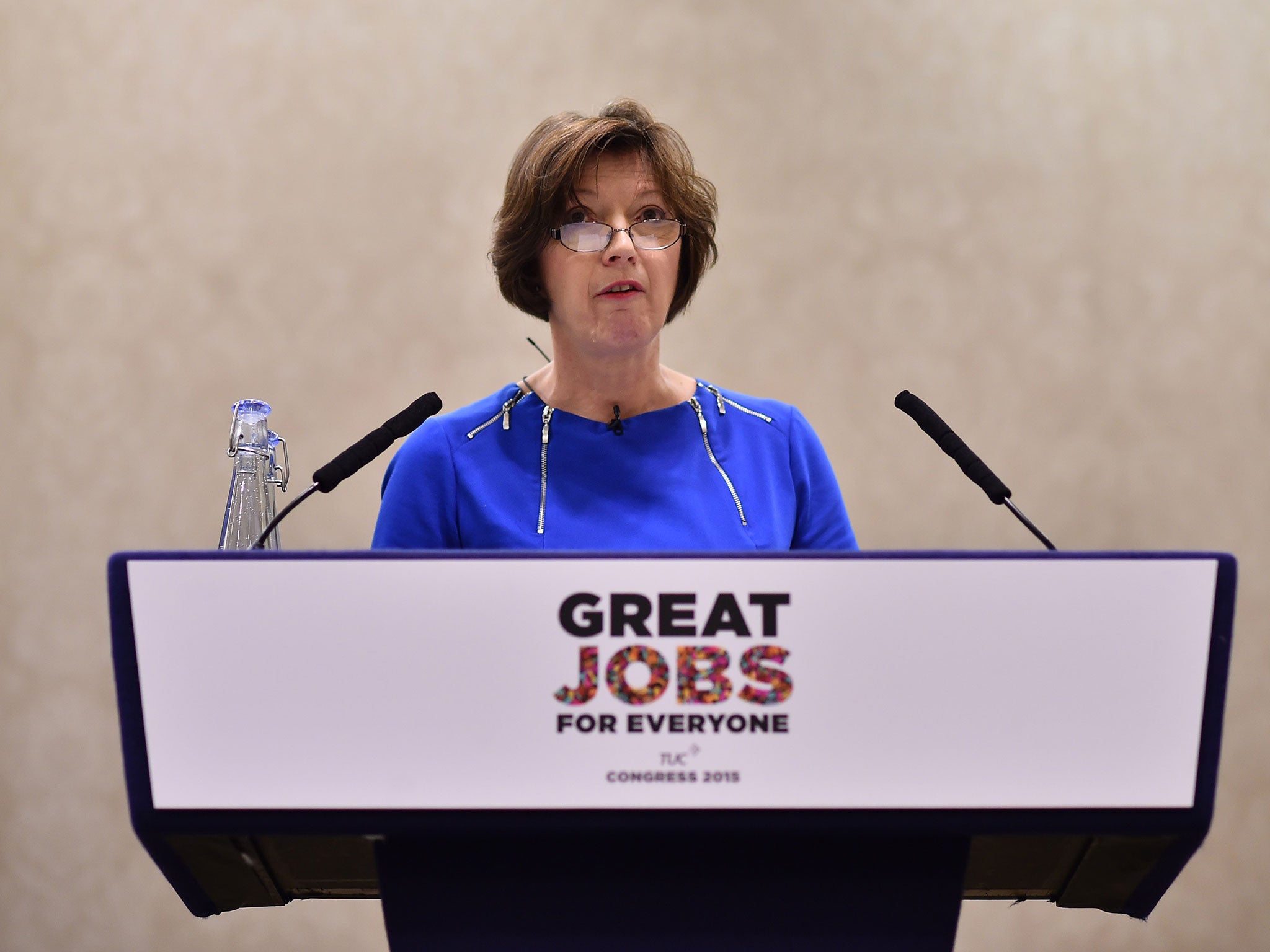Unions the key to solving the problem of Britain's pay squeeze
The economy is being damaged as wages fail to keep up with inflation. An increase in the number of workers benefitting from collective bargaining could help close the gap

Your support helps us to tell the story
From reproductive rights to climate change to Big Tech, The Independent is on the ground when the story is developing. Whether it's investigating the financials of Elon Musk's pro-Trump PAC or producing our latest documentary, 'The A Word', which shines a light on the American women fighting for reproductive rights, we know how important it is to parse out the facts from the messaging.
At such a critical moment in US history, we need reporters on the ground. Your donation allows us to keep sending journalists to speak to both sides of the story.
The Independent is trusted by Americans across the entire political spectrum. And unlike many other quality news outlets, we choose not to lock Americans out of our reporting and analysis with paywalls. We believe quality journalism should be available to everyone, paid for by those who can afford it.
Your support makes all the difference.TUC general secretary Frances O’Grady often likes to say that Britain needs a pay rise. Yet more evidence of how true that is has emerged in the latest GfK consumer confidence index.
Based on a survey of 2,000 Britons, it found sentiment has fallen to its lowest level since the Brexit vote. People’s inclination to spend on big ticket items is at its lowest level in a year.
Inflation, driven by the weak pound, is on the march, and wages are failing to keep up. Throw in a heady dose of political uncertainty and it’s no wonder that one of the British economy’s key drivers - the consumer - is rapidly running out of puff.
But how to address the situation?
Policymakers increasingly see the problem, and so they should. It has bedevilled the country since the financial crisis of 2008.
The benefits of the economic recovery since that time have not been widely shared. CEOs, university vice chancellors, council bosses, they’ve all done very nicely thank you. The rest of us haven’t been so fortunate.
Yet when it comes to solving this problem, our political masters seem all at sea. That needs to change.
There is a pressing need for them to shake off the tired old thinking that has dominated British politics for decades and to conduct a re-appraisal of role played by trade unions.
Workers who benefit from collective bargaining through unions are better paid and enjoy better benefits. According to the TUC, the union pay advantage stands at 16.1 per cent in the public sector, 7.7 per cent in the private sector.
At this point readers of a certain age may be inclined to say but, but, but the 1970s. The Winter of Discontent. Unions bosses bad! Here’s the thing: That was the 1970s.
The Winter, a high point in industrial unrest that ushered in Thatcherism, was 40 years ago.
The country has moved on since then, and so has the union movement. It is just the political classes that haven’t.
I’ve written many times that even the Chartered Institute for Personnel & Development, made up of the human resources professionals who inevitably find themselves at the sharp end of industrial unrest, was critical of the last Conservative Government’s regressive anti union legislation. It described it as “out dated” and “unnecessary” and called instead for dialogue. Score one for the grown ups.
While a number of high profile disputes, such as that at Southern Rail, inevitably garner headlines, the number of days lost to strikes is extremely low by historic standards.
According to Government figures, there were just 101 work stoppages across the country in 2016. While the number of days lost to them increased compared to 2015, chiefly as a result of action by junior doctors, the overall figure of 322,000 was still the eighth lowest in the 125 years that the data has been collected.
Low pay is a far more pressing problem than industrial disputes, and far more damaging to the country’s economic performance.
In an interview with the BBC last night, Andy Haldane, the Bank of England’s chief economist, blamed business for not investing enough to drive productivity improvements that would push pay higher.
That too is a problem in Britain, whose over-paid bosses focus on short term results, and short term incentive schemes, at the expense of everything else.
However, if they had to pay more as a result of collective bargaining, if that forced them to think harder about productivity and spurred them to invest more as a result, then the issue might just get addressed to the benefit of everyone (including them).
As union membership has fallen, and their activities have been curtailed, so have the pay (in real terms) and the conditions of the British workforce, creating an angry and resentful electorate and an unstable politics.
It is time for a re-think. If Britain is to get the pay rise it needs, its unions should be empowered to assist with that.
Join our commenting forum
Join thought-provoking conversations, follow other Independent readers and see their replies
Comments